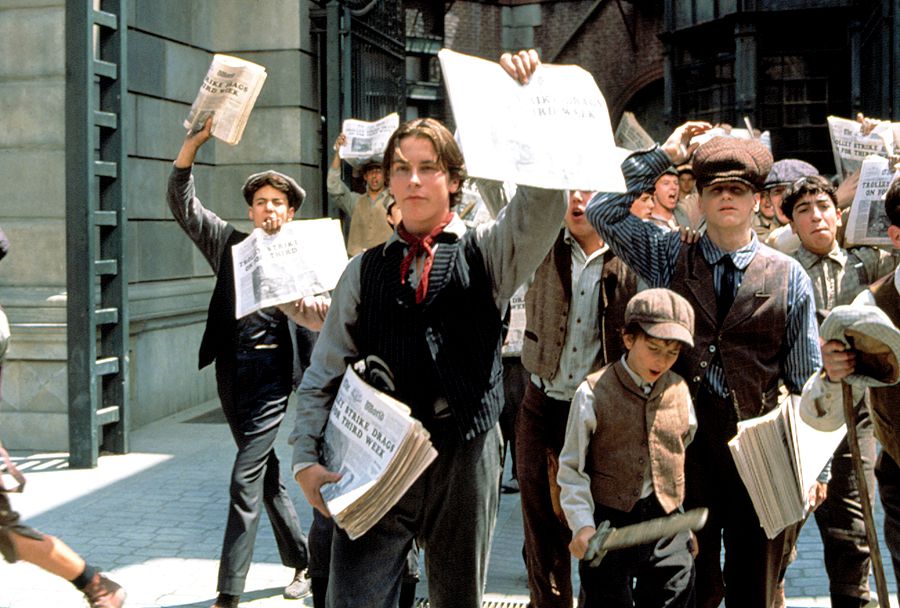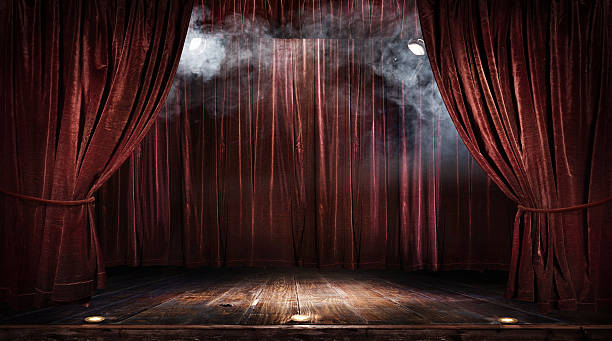I am lost.
I'm having a crisis of faith. I've long believed that the theatre is my church, in a very real and serious sense. That makes me a priest, in its fundamental meaning. And I'm having a crisis of faith.
I don't understand how and why we got here. All my life I've had this core belief in humanity, that people are all basically good, that in the long term we always head in the right direction and we take care of each other. But how can I believe that anymore? Half our country voted for the most corrupt, most vulgar, most destructive person in our political history. A third of our country still thinks only he can fix it. Millions of Americans made the pandemic so much worse and so much lengthier because they chose to be irrationally selfish, and then re-branded selfishness as freedom.
How can I hang on to a fundamentally positive, optimistic view of humanity today? And by extension, how can I believe that art could ever make a dent in that ferocious fear and hatred? Yoda was right about the Dark Side. I just never thought we'd see it play out in real time in America.
Something I can't define has really changed in me. I see the world so very differently now than I used to. I can see so much that I could not see before, and some of it really unpleasant. Maybe it's the whole primordial stew of the pandemic and all its repercussions, the baffling, erratic behavior of some previously rational people during and after the pandemic, the financial stress that the still lingering effects of Covid have placed on me personally and on New Line.
It's also likely about me turning 59 this month, and New Line turning 30 last year.
One of the things I see really clearly now is the way people interact with each other in this post-pandemic world. It's like I put on the sunglasses in that sci-fi movie They Live and I can finally see all the aliens. So what have I noticed? One thing is that everybody right now seems either consciously, deliberately in service of their fellow humans; OR they seem defiantly committed to Every Man for Himself.
I'm not being melodramatic (at least, I don't think I am). Along with all the additional complexity and maddening nuance in our world, there seems to be also this new, even brighter line between those of us who feel some deep down obligation to do something right now, to help, to heal; and those of us who are still belting out their "I Want" song in a spotlight down-center.
Some of our media is more focused than ever on informing and explaining these times we're living in, and the implications of all that's happening to and around us. BUT some of our media is still focused on clicks and ads, and that kind of cynicism reverberates down through society. What do we do when half the country is afraid -- and that fear is based on devilishly well-tuned lies? What do we do when half the media realizes they can make big bucks off that fear?
I want to believe those of us in the profession of storytelling have the biggest obligation of all today. I want to believe that what we do still can help. After all, every human culture is created, defined, and remembered by its stories. Stories are the only way we have to truly understand ourselves, each other, and the world around us. But to quote Uncle Steve, "Careful -- no one is alone." Our world has been flooded recently by false stories, more than ever before, which have every bit as much persuasive power as true stories.
Certain forces in American politics learned decades ago how to cynically manipulate the fear that has enveloped tens of millions of Americans, and they have reached their cynical stride today. These false storytellers use all the same devices and tools of the true storytellers. But while the true storytellers enrich and enlighten their audiences -- to serve them -- the false storytellers reassure their audiences that all their darkest fears are actually true, every nightmare becoming reality, in order to profit from them. The forces of the Dark Side know full well the human tendency toward confirmation bias -- accepting only that which confirms your own beliefs -- and they exploit our weakness fully.
There are so many examples of this cynical manipulation, but maybe the most obvious and most deadly were the manufactured controversies over wearing masks and over vaccinations during the pandemic. It was like no one had been taught The Golden Rule in kindergarten or Sunday School. It was like The Golden Rule was for suckers. Selfishness and willful ignorance were redefined as patriotic. And the false storytellers made fat handfuls of profit off the fear and anger and cruelty.
The true storytellers kept telling their true stories, but suddenly they found themselves in a storytelling hall of mirrors, where false stories were trumpeted as true, and true stories were indicted as false -- and only money and volume got to decide which was which. We were reminded repeatedly that people believe what they hear first, what they hear most, what goes unrefuted, and what comes from a trusted source.
Notably, they don't necessarily believe what is true.
Just like it was a century ago when there were tons of newspapers, pulling exactly the same cynical crap, we Americans have to learn all over again how to tell the difference between what's true and what's not, especially when what's true often isn't what we'd prefer.
I'm lost right now.
I chose long ago that my life was going to be about serving my fellow humans as a storyteller; and I long ago accepted the inherent price to pay, that I'd never make much money that way. When I was a little kid, I told everybody I wanted to be an actor, but I didn't have the vocabulary for what I really felt. I wanted to be a storyteller. I was called to it. It was always inside me. It's what I am. I tell stories with music. I guess I also tell stories about stories with music.
I'm not saying storytellers are better or more important than any other vocation. People are called to medicine or to teaching or food or building, in the same way I was called to storytelling. It took me a good chunk of my life to fully understand, though, that storytelling is as vital to human survival as medicine, teaching, food, and building.
So now I'm lost.
I already said that, didn't I?
Half our country would turn down a glass of water in the middle of the desert if someone of the other political party were offering it, and their hatred is based on belief in lies. How can I tell them a story, or I guess more to the point, how can I get them to listen to a story? And if storytelling isn't enough anymore, what do the storytellers do?
You can lead a horse to water but you can't put his head in bed with your enemy.
See what I did there? I put a whole weird story inside your head, and maybe I invoked The Godfather and/or Animal House. And why do so many of us know those two movies, all these years later, including people who weren't yet born when the films were released? Because humans need stories. We constantly consume stories. We can't live without stories. And the good stories, the ones that are important, the ones that touch us, the ones that teach us, that enlighten us, those are the ones that stay with us.
I do understand why my entire industry had to be shut down when the pandemic struck. Everything I do is built around people gathering in public places. But it's just that now I can see more clearly than ever that we as a culture don't value our storytellers much. We don't take care of them. We insist "the market" -- in other words, money -- must decide success or failure. Just like an auto parts store.
In case you weren't sure, storytellers are not auto parts stores.
Storytelling should no more be subjected to the amorality and immorality of capitalism, than healthcare or education or fire departments should be. There should never be a profit margin for providing something essential to human existence, well-being, and happiness. Call me a Commie Pinko, but that seems about as obvious to me as the tiny claw marks on my arm from my cat Macheath.
Do we really have to wait till the 23rd century to learn all the things Star Trek laid out for us more than fifty years ago? An end to racism, sexism, war, poverty, hatred, the flourishing of knowledge and science and connection.
Do we have to stand helpless when the false storytellers spout off about Jewish space lasers again? Do we have to let them steal the conversation just because they're loud and mean? Do we have to let people makes pots of money by reassuring the fearful that all their fears and nightmares are worth fearing? Can't we speak up aggressively against the false stories and condemn them? And contradict them? Is there any way to flood the zone with true stories?
No.
Not if you don't take care of your storytellers. Do you value us or not? Will you let us -- help us -- heal this broken world? Or will we all succumb to the darkest worldview, the fear, the isolation, the anger, the violence, the hatred?
We all know how badly teachers are paid, and how under-appreciated. It's so much worse for actors, singers, musicians, dancers, writers, directors, designers. Most of us get paid really badly, not even close to a living wage, and also not consistently. Why? Because "the market" won't support high enough ticket prices to pay the real cost of a theatre or concert seat. Theatres are tax-exempt because they are deemed by the Supreme Court to be inherently beneficial and necessary to the well-being of a community. That story itself is one of particular importance that I try to tell periodically.
But though our fellow humans may need desperately what we storytellers do, though we are in a very real sense the shamans of our tribes, Capitalism does not value what storytellers do as much as it values those who make money from money, creating only wealth, or those who make money from fear, creating only more fear.
There's nothing wrong with getting rich, but a lot of us storytellers spend our days trying to figure out how to not get evicted or how to not get the electricity turned off. Why is that okay? It's even worse now than it was a few years ago. Covid continues to cancel performances even now. Every working performer in America was financially crippled by the pandemic, and psychologically traumatized. None of us emerged unscathed or unchanged.
You know what happens if we lose our storytellers? Back to the Future II. Like America under Trump, but without the laughs.
From a purely personal perspective, you know what's so hard about it all? We give ourselves to the world, to our fellow humans. It sounds melodramatic but it's true. We give ourselves. We use our minds and mouths and breath and bodies and emotions to tell stories that help people bond and learn and grow and connect. It's a monumental task but we take it on over and over, just like generations before us, because something inside of each of us tells us that we have to, that it's important, that people need our stories, that we are fulfilling our calling when we are telling a story, that only then are we our full and true selves, in the act of storytelling.
And what's so hard about it, is that after centuries of stories and storytellers, it's still this hard.
And what's particularly ironic about how I feel is that it sort of parallels the struggle of film director Guido Contini, the main character of the musical Nine, which I'm in the midst of directing. Guido, a barely fictionalized avatar of real life genius filmmaker Federico Fellini, is lost for different reasons, but we're both lost. His obstacles are all internal; most of mine are external. But they all sometimes seem impossible to overcome.
I guess it's easy to understand how we got here and why things are the way they are. But only if we value money over each other. Do we?
Long Live the Storytellers.
Scott
P.S. To donate to New Line Theatre, click here.
P.P.S. To check out my newest musical theatre books, including my latest, He Never Did Anything Twice: Deconstructing Stephen Sondheim, click here.
Subscribe to:
Post Comments (Atom)













1 comments:
Sorry you're having this struggle.
Your work has been inspiring to me for the approximately three decades I have been reading it (books, blog, and before then, articles on the old Stephen Sondheim Stage site.) I hope you are able to keep through this hard time and continue your excellent musical theater analysis.
Post a Comment